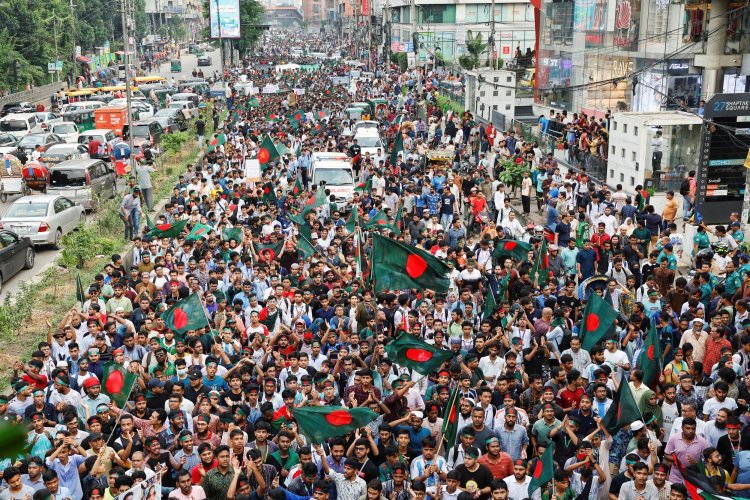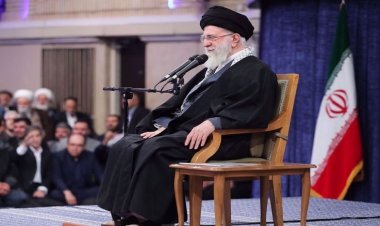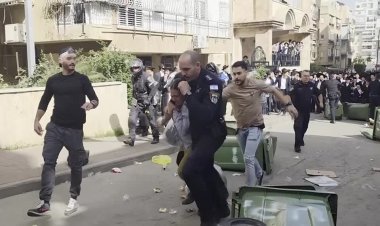Protests in Dhaka Continue After Hasina's Ouster

One month after the ousting of former Prime Minister Sheikh Hasina, thousands of protesters rallied in Bangladesh's capital, Dhaka, and across the country. The mass uprising, initially sparked by students over government job quotas, led to Hasina's flight to India on August 5 after weeks of violence that resulted in over 600 deaths.
Demonstrators chanted slogans against Hasina and Indian Prime Minister Narendra Modi, condemning India for allegedly promoting Hinduism and sheltering Hasina. The central procession, dubbed a "shaheedi march" or "procession for the martyrs," began at Dhaka University and marched through the streets, with participants carrying Bangladeshi and Palestinian flags.
An interim government led by Nobel laureate Muhammad Yunus has taken charge, prioritizing law and order to stabilize the country. Yunus vowed to build a new Bangladesh and fulfill the dreams of the young revolutionaries. In an interview, he called for Hasina to remain quiet while in India, stating that her political remarks were problematic and unfriendly.
Yunus' administration is reorganizing state institutions as violence and unrest continue. The country's chief election commissioner and deputies have resigned, and garment workers' protests have disrupted industrial operations.
The interim government claims support from 197 global leaders, including 97 Nobel laureates and figures like former US President Barack Obama and entrepreneur Richard Branson.
Concerns have been raised about attacks on minorities, particularly Hindus. However, Yunus refuted reports of targeted attacks on the Hindu minority, describing them as more political than communal and a fallout of the political upheaval.
The situation in Bangladesh remains tense as the country attempts to navigate this significant political transition, balancing internal reforms with regional relationships and addressing concerns about minority rights and border security.















